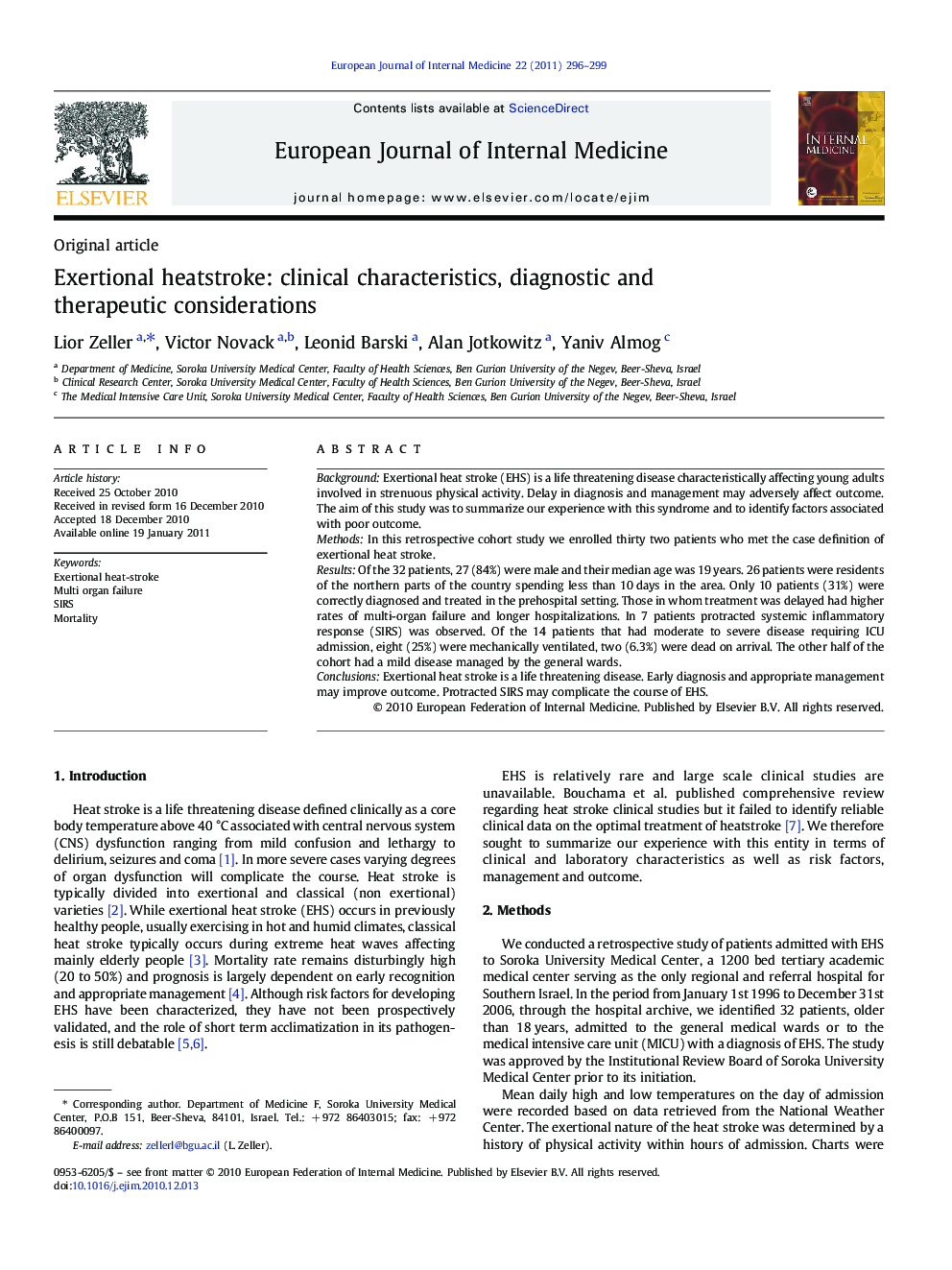| Article ID | Journal | Published Year | Pages | File Type |
|---|---|---|---|---|
| 3468093 | European Journal of Internal Medicine | 2011 | 4 Pages |
BackgroundExertional heat stroke (EHS) is a life threatening disease characteristically affecting young adults involved in strenuous physical activity. Delay in diagnosis and management may adversely affect outcome. The aim of this study was to summarize our experience with this syndrome and to identify factors associated with poor outcome.MethodsIn this retrospective cohort study we enrolled thirty two patients who met the case definition of exertional heat stroke.ResultsOf the 32 patients, 27 (84%) were male and their median age was 19 years. 26 patients were residents of the northern parts of the country spending less than 10 days in the area. Only 10 patients (31%) were correctly diagnosed and treated in the prehospital setting. Those in whom treatment was delayed had higher rates of multi-organ failure and longer hospitalizations. In 7 patients protracted systemic inflammatory response (SIRS) was observed. Of the 14 patients that had moderate to severe disease requiring ICU admission, eight (25%) were mechanically ventilated, two (6.3%) were dead on arrival. The other half of the cohort had a mild disease managed by the general wards.ConclusionsExertional heat stroke is a life threatening disease. Early diagnosis and appropriate management may improve outcome. Protracted SIRS may complicate the course of EHS.
